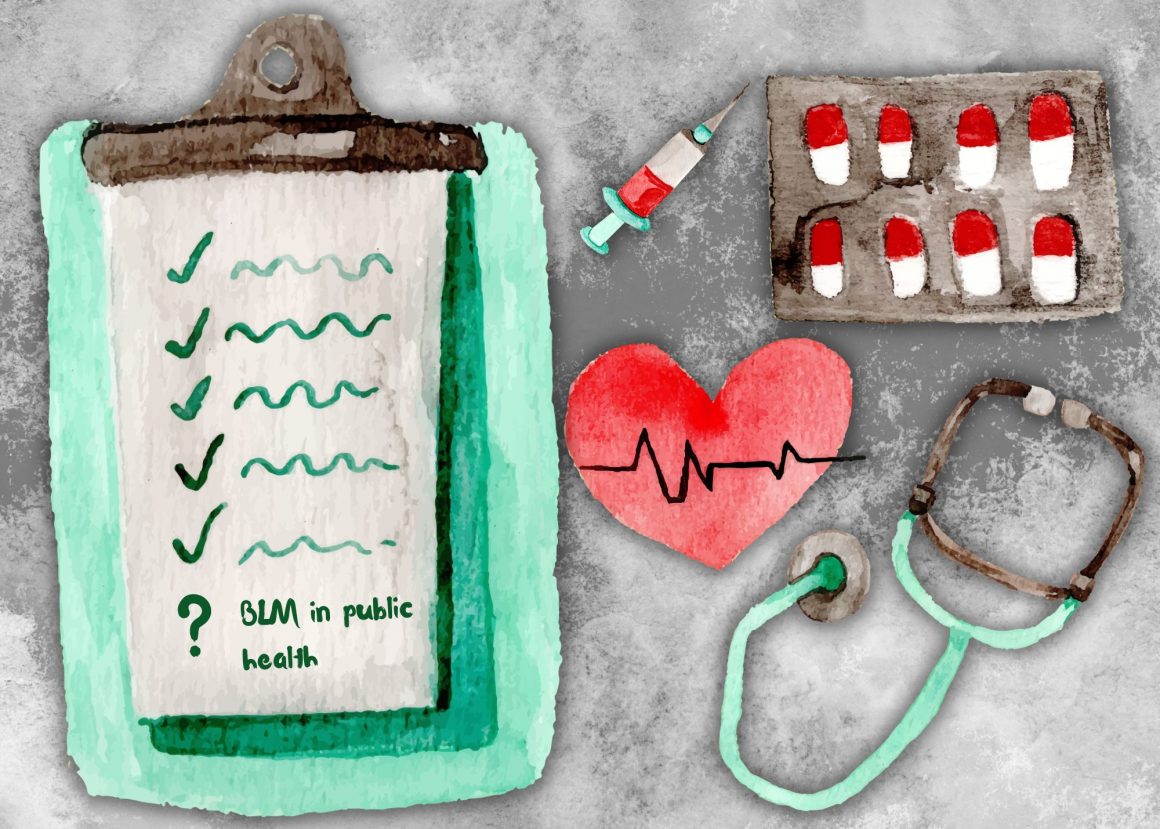
Fighting anti-Black racism in healthcare
By Aymen Sherwani, February 15 2023—
It may surprise you to know that in a society built on slavery and colonialism, within which White people were positioned at the top of the hierarchy, that every institution in that society — including healthcare — would be embedded with white supremacy. Shocker. In Canada, anti-Black racism in the context of healthcare is rooted in pre-existing beliefs about Black Canadians that reinforce prejudices and stereotypes towards those of African descent. This, in turn, leads to a lack of equitable access, opportunities, positive outcomes and quality of life for Black people.
“Even though we’re the third largest, quote unquote, visible minority group in Canada, either there was nothing about us in the materials or it was often the wrong information,” said physician and professor, Onye Nnorom, one of the leading voices surrounding the conversation on Anti-Black racism in Canada and one of the founders of the Black Health Education Collaborative (BHEC). “There isn’t a textbook or an online resource that really speaks to Black population health in a Canadian context and the social factors that impact Black community health and all of the other intersecting factors like culture, and also the lack of race-based data.”
The BHEC is a community of scholars and health practitioners that seek to transform medical and health professional education to improve the health of Black communities across Canada through education and research. Their mission? Addressing anti-Black racism through interlocking and overlapping systems of inequality that ultimately also impact health. The organization finds that being Black means that life is “intricately connected” to certain places and spaces of work, worship, recreation and resistance within which there are long histories of which healthcare is not exempt.
It also asserts that anti-Black racism is unique from any other form of racism and discrimination because of its connection to enslavement and the historical methods in which the institution of slavery was justified through the creation of myths and stereotypes about Black people. Such myths normalized ideas that Black people “were biologically different or subhuman, less intelligent” and “had a greater tolerance for pain” — which in turn led to inhumane experimentation on Black bodies by healthcare practitioners.
For instance, James Marion Sims — often referred to as the father of modern gynaecology and later the president of the American Medical Association — conducted experiments on enslaved Black women without anaesthesia, falling in line with later experiments like the Tuskegee Syphilis Study, which sought to determine what would happen if the disease went untreated — ultimately leading to the death of 100 Black men. These incidents were both justified by physicians by the time through the misconception that “Black people did not feel pain” and continue to impact the relationship Black Canadians and Americans have with healthcare with respect to trust and existing prejudices today. For instance, African-American people were found to be 63 per cent less likely to receive pain medication when compared to their white counterparts in a 2003 study.
There is a common problem of doctors and nurses making broad generalizations about racial and ethnic groups, often relying on patterns of patient behaviour, which in turn leads to patient skepticism.
A Forbes article highlights that some doctors may think that “Black patients won’t comply with my instructions about taking this medicine, or they won’t be able to afford it, so there’s no point in prescribing it,” which in turn creates the idea that “doctors have disrespected my family and me before, and shown from what they say that they don’t know what my life is like, so there’s no point to taking any medicine they give me.”
These hostilities continue to impact the quality of life and healthcare experienced by Black Canadians today. To combat them, the BHEC has created a primer for all healthcare professionals and students in Canada, with modules that include critical information about Black health, so while there are still grave disparities to dismantle, the world seems ready to listen and grow from such a dark history.
This article is a part of our Voices section and does not necessarily reflect the views of the Gauntlet editorial board.
